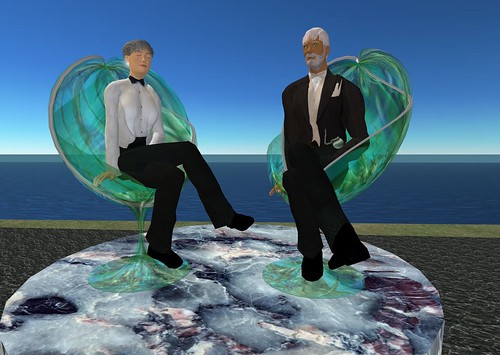Opening soon...
There's a great televison program called Opening soon. It chronicles the process of opening a new restaurant or fashion store. You get to see the hopes, dreams, frustrations of would-be entrepreneurs (many of whom have been successful in their own right). As the days go by, the money gets drained with each slippage. My heart goes out to them each minute I watch and then I celebrate with them as they finally open their doors.
Software startups are no different. There is the same passion to create, to serve, to provide enormous value, with tight timelines and budgets. This week, the 80/20 rule applies, getting to prototype was quick and rewarding, now we're sweating the small stuff. The icon that doesn't quite look right, the missing database information we didn't think we needed, the branding that needed tweaking, the marketing message, the list goes on...
The best thing is we have terrific mentors and advisors, people who are very involved, yet see it all from the outside. Yesterday, in the space of 30 minutes over the phone, one of our advisors/co-founder/friend zoned in on half a dozen or so things that made our site look so much better this morning. Still lots to do, but each day, the system improves by leaps and bounds, and I have to resist the temptation to release before it's really ready.
This experience is about giving birth to a dream. Earlier in the week, I typed in our url only to have the browser spit back an error message, Server not found. For a moment, I sweated and panicked, then realized that my wireless connection had dropped. In my moment of relief that followed, I reminisced over our first baby, how we kept checking every so often if he was still breathing. Some things don't change....
and yes...we are opening soon...
Software startups are no different. There is the same passion to create, to serve, to provide enormous value, with tight timelines and budgets. This week, the 80/20 rule applies, getting to prototype was quick and rewarding, now we're sweating the small stuff. The icon that doesn't quite look right, the missing database information we didn't think we needed, the branding that needed tweaking, the marketing message, the list goes on...
The best thing is we have terrific mentors and advisors, people who are very involved, yet see it all from the outside. Yesterday, in the space of 30 minutes over the phone, one of our advisors/co-founder/friend zoned in on half a dozen or so things that made our site look so much better this morning. Still lots to do, but each day, the system improves by leaps and bounds, and I have to resist the temptation to release before it's really ready.
This experience is about giving birth to a dream. Earlier in the week, I typed in our url only to have the browser spit back an error message, Server not found. For a moment, I sweated and panicked, then realized that my wireless connection had dropped. In my moment of relief that followed, I reminisced over our first baby, how we kept checking every so often if he was still breathing. Some things don't change....
and yes...we are opening soon...











